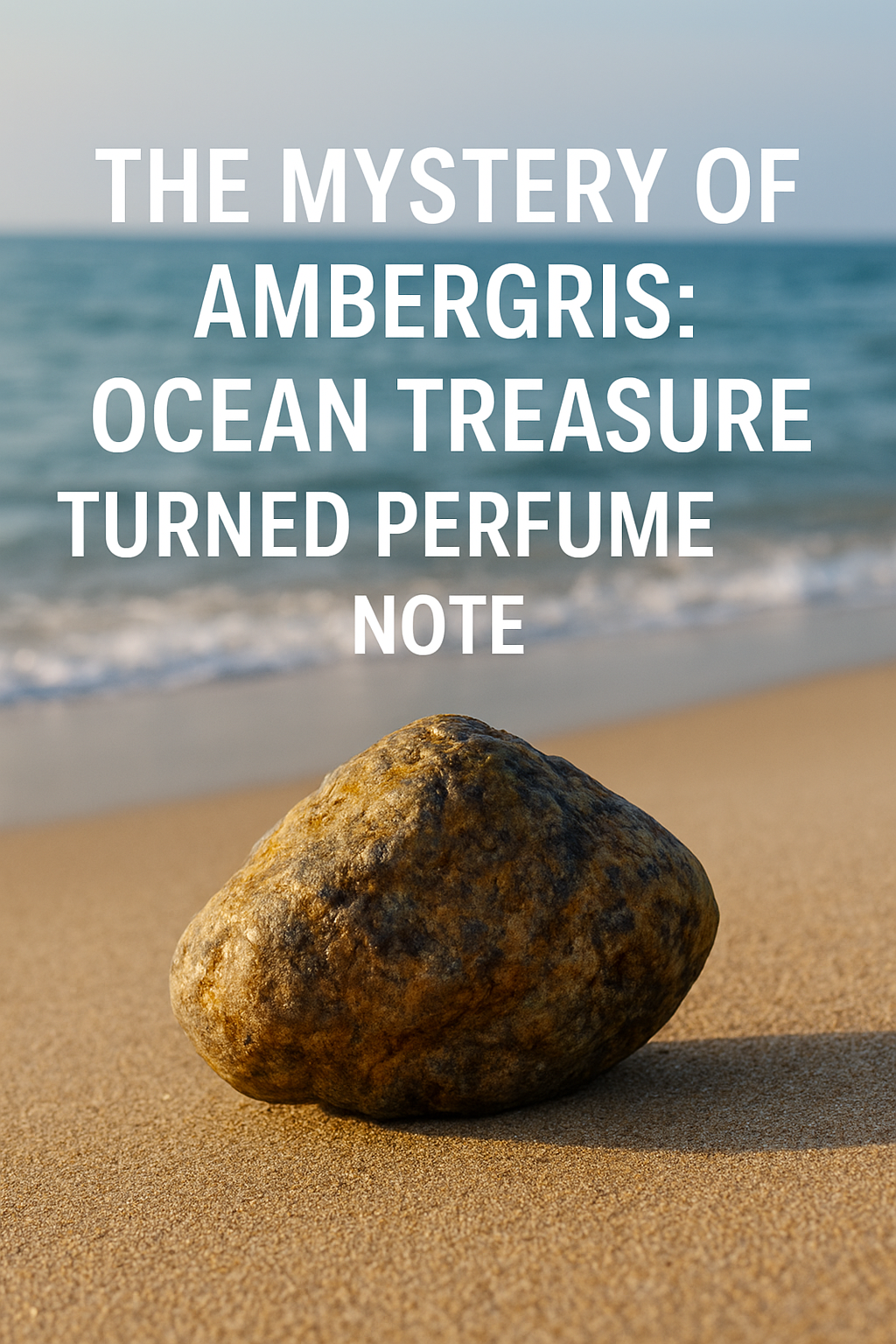
The Mystery of Ambergris: Ocean Treasure Turned Perfume Note
Among the world’s rarest perfume ingredients, few are as intriguing as ambergris. Often nicknamed “floating gold” or even “whale vomit,” this ocean-born treasure has been treasured for centuries by perfumers, royalty, and traders. But what exactly is ambergris, and why does it continue to hold such allure?
🌊 What is Ambergris?
Ambergris is a waxy material formed in the digestive system of sperm whales. While it’s often called whale vomit, the reality is more complex — ambergris usually passes through the whale’s intestines and into the ocean. Once expelled, it floats for years, weathered by salt, sun, and sea air. Over time, it undergoes a remarkable transformation, developing a complex aroma — warm, musky, slightly marine, and subtly sweet. This unique scent profile is why it remains so coveted in perfumery.
🕰️ A History of Luxury
Ambergris has carried mystery for thousands of years:
-
Ancient Egypt: burned as incense in temples.
-
Medieval Europe: used in medicines and even sprinkled on food.
-
Renaissance courts: a luxury reserved for nobility.
Because it could only be found drifting at sea or washed ashore, ambergris symbolized both rarity and wealth.
💎 Why So Valuable?
Ambergris is rare, unpredictable, and naturally beautiful — making it one of the most expensive perfume ingredients:
-
Scarcity – Only a small number of whales ever produce it.
-
Uniqueness – Each piece develops its own scent journey.
-
Luxury appeal – Its aroma adds unmatched depth to perfumes.
Natural ambergris can fetch thousands of dollars per gram, sometimes more valuable than gold.
🌹 Ambergris in Perfumery
Perfumers prize ambergris not just for its fragrance but also for its role as a fixative, helping scents last longer on the skin. Many iconic perfumes once relied on it, though today sustainable synthetic alternatives like Ambroxan are widely used to recreate its magic without environmental concerns.
🌍 Ethics and Modern Alternatives
Because ambergris is linked to whales, its trade is regulated worldwide. Thankfully, fragrance chemistry now offers cruelty-free substitutes that capture its mystery while protecting marine life.
